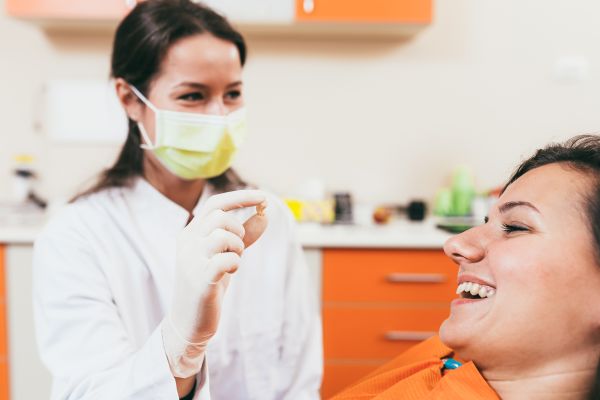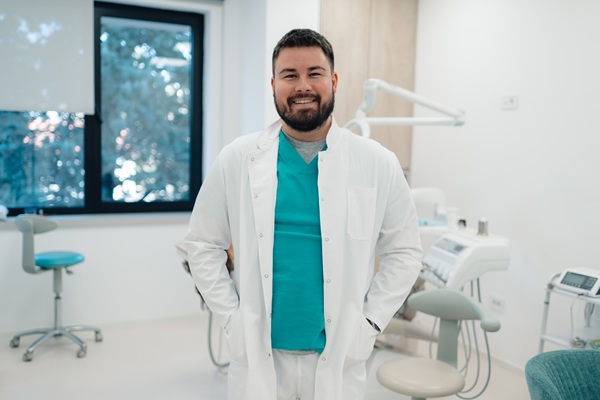Recovering From a Tooth Extraction in 28752

Although adult teeth are meant to last for a lifetime, tooth extraction is often necessary as people age. This may be for a number of reasons, including but not limited to tooth decay, trauma, a crowded mouth or a badly damaged tooth. If you recently had a tooth extracted, it is important to know what to expect in the aftermath and what you can do to speed up recovery.
Caring for the mouth after tooth extraction
When a dentist removes a tooth from a patient's mouth, it is the professional's responsibility to inform the patient of what needs to be done to help the mouth heal and ensure comfort throughout recovery. Typically, recovery from dental surgery of any kind takes seven to 10 days, as the mouth heals fairly quickly. However, if a person does not follow doctor's orders, recovery can take exponentially longer and be exponentially more painful than it needs to be.
To speed up healing time, the patient needs to keep the blood clot in place in the tooth socket, which can be done in a number of ways:
- Leave the gauze in place for at least three to four hours post-surgery
- Use an icepack immediately after surgery for 10 minutes at a time but not longer, as too much cold can cause tissue damage
- Rest for the 24 hours following surgery and limit activity in the days following
- Avoid using a straw, spitting or rinsing for 24 hours
- Once 24 hours has lapsed, rinse with salt water
- Do not smoke
- When sleeping, prop up the head using a pillow, as lying flat can delay healing
- To prevent infection, continue to brush and floss, but avoid the site of extraction
Tooth extraction patients should also take painkillers as recommended. If the pain does not subside within two to three days, patients are encouraged to contact their dentists. This is especially the case if the pain grows worse.
Eating post extraction
A large part of the healing process entails avoiding certain foods that may aggravate the extraction site. This eliminates most solids from the diet for at least in the week following the procedure. Dentists recommend patients eat soft foods such as yogurt, pudding, soup, applesauce and mushed-up veggies. Patients can also eat smoothies and milkshakes, though they should do so with a spoon, as straws can dislodge the clot. Only once the extraction site begins to heal can patients begin to incorporate solid foods back into their daily diets.
Outlook
If a patient follows the dentist's orders to a T, there is no reason the mouth should take longer than two weeks to heal. Once healed, the patient should be able to return to life as normal, including eating a healthy, wholesome diet of solid foods.
It is important to note that the teeth may shift after one is extracted, thereby affecting the bite. For this reason, patients are encouraged to discuss tooth replacement with the same dental professional who extracted the tooth. Tooth replacement options include dentures, a fixed bridge or implant.
Conclusion
Though individuals are likely to feel some degree of pain post-tooth extraction, there are steps dentists recommend to mitigate pain and speed up recovery. By following these orders, patients can avoid unnecessary complications.
Request an appointment here: https://www.marionfamilydentist.com or call Marion Family Dental at (828) 652-6967 for an appointment in our Marion office.
Check out what others are saying about our services on Yelp: Read our Yelp reviews.
Recent Posts
There is no one-size-fits-all answer to whether a smile makeover or a single cosmetic dental treatment is better. A smile makeover includes multiple procedures to improve the overall shape, color, and alignment of a smile in a planned order. However, some individuals may only need one cosmetic dental treatment to achieve their smile goals. The…
A restorative dentist does more than repair damaged teeth. These general, cosmetic, and family dentists play a key role in keeping the whole mouth healthy for the long term. They achieve this by keeping track of how teeth, gums, the bite, and the jaw joints work together, rather than focusing only on single problems. With…
Tooth extraction is a common dental procedure that may be necessary for various reasons, including decay, infection, or overcrowding. After undergoing a tooth extraction, it is crucial to follow proper care instructions to ensure a smooth and successful healing process. Understanding the dos and don'ts after a tooth extraction can help prevent complications, reduce pain,…
Invisalign® is a fast way to straighten teeth, using clear, removable trays. However, smoking can negatively impact patient comfort and aligner appearance throughout treatment. It can even prolong treatment times. Learning more about how smoking can affect Invisalign treatment can help motivate patients to limit or quit tobacco altogether.Smoking tobacco can reduce the efficacy and…


